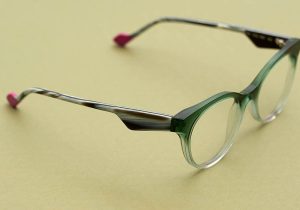What is a pterygium?

A pterygium is a triangular-shaped lump of tissue that grows from the conjunctiva (the thin membrane or “skin” of the eye that covers the white of the eye) and onto the cornea – the clear central part of the eye.
Are pterygia dangerous?
Even though they can look scary and cause you discomfort, pterygia are not dangerous. A pterygium is not a cancer.
The main problem with pterygia is that as they grow on the cornea, they distort it causing your vision to become blurry. If the pterygium grows on the central part of the cornea it can begin to block light from entering the eye. Pterygia often occur in both eyes (known as bilateral pterygium), usually on the side of the eye closest to the nose.
Although a pterygium is not dangerous it should be checked to make sure that it is not something more serious. If you have any area of tissue on or around the eyes that changes rapidly you should consult one of our optometrists immediately.
What causes pterygia?
The most common cause of pterygia is overexposure to UV light, as well as dust and wind.
Pterygia and UV light
There’s a reason why this condition has been dubbed “Surfer’s Eye”, and that’s because it most often affects people who spend a lot of time outdoors in sunny and windy conditions, i.e. surfers!
Pterygia is just one of the conditions that can result from too much exposure to dangerous UV radiation. Research by the Australian Skin Cancer Foundation found that our eyes are 10 times more sensitive to UV radiation than our skin. That’s a staggering number, and while we know the sun is an excellent source of vitamin D, too much exposure can contribute to pterygium, cataracts, and cancer of the skin around the eye.
Book an appointment today
Our community of optometrists are dedicated to helping you see more clearly, and maintain healthy eyesight over a lifetime. Assessing your eyes for UV damage is just one part of a thorough eye examination that examines the health of your eyes, as well as 9 other holistic factors to ensure healthy vision.







